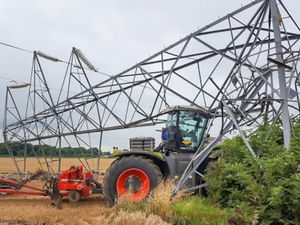Avoiding slip-ups when clearing snow and ice
The recent snow and ice has again brought focus to what law applies to dealing with the problems caused to public highways and private property.
Where do farmers stand when it comes to ensuring access on their land is safe for people to use?
Motorways and main roads and side roads are likely to be the responsibility of the Highways Agency while lesser roads tend to be within the remit of the local authorities. At £40 per tonne of salted grit it is hardly surprising that it is not economically viable to provide comprehensive cover.
In the light of this it is to be expected individuals may try to clear snow and ice on the highway in close proximity to their properties in an emergency. It is the case that if an individual makes the highway more dangerous by carrying out snow and ice clearance they can be made liable to criminal and private claims. However if the snow clearance is carefully carried out and does not make the highway more dangerous than before it is unlikely that this would lead to legal liability.
One example of where this went wrong was hot water being used to melt snow which then turned to black ice and directly caused an accident. Also beware of compacting snow into what may become black ice and consider where removed snow is placed.
Regarding private roads and paths, under the Occupiers Liability Act 1957 in England and Wales, the owner or occupier of a property owes a duty of care to ensure that visitors are reasonably safe while on the property.
Within reason you should clear snow and ice on your property to enable third parties to pass without falling.
If you know someone will be likely need to walk over your garden path, farm drive or yard such as the postman and you know it is slippery, then you should take reasonable steps to clear it, grit it, and so on.
What is reasonable? You may be able to clear a short drive or path fairly easily. If you have a long drive you may not be able to clear it.
If it is a farm drive and farmyard you may be able to clear it with a tractor and shovel and put down grit. This is not clear cut because each case stands on its own merits, but if you have within reason cleared it then you have fulfilled your duty.
After clearing may come further freezing and ice but you can demonstrate you have made a reasonable attempt. However to do nothing does open you up to a claim for negligence.
Steven Corfield is a partner and agricultural specialist at Shropshire law firm FBC Manby Bowdler LLP.





